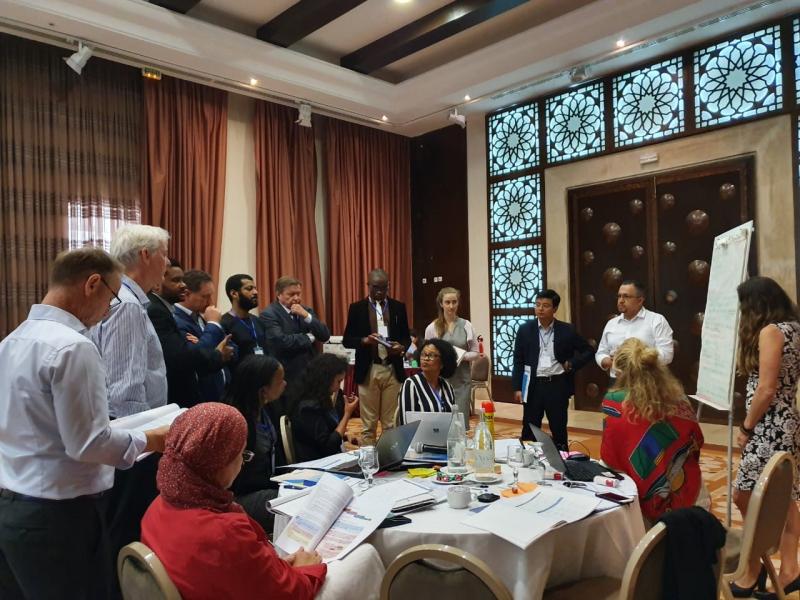
Expert Meeting on Global Guidance for Emergency Response Operations Planning to Enhance Country Readiness
August 26, 2019
Last month, WHO organized a landmark global technical consultation to facilitate guidance on supporting countries to develop emergency response operations plans. The consultation was hosted by the Government of Tunisia from 26-28 August 2019 and involved participation of experts from regional Ministries of Health, as well as representation of partners and WHO Regional and Country Offices.
The three-day consultation was rooted in identifying how best to support countries to develop and improve health response operation plans for emergencies, including through the use of guidance, tools, and trainings. The meeting also centred on planning how these can be strengthened through application of important evidence and good practices that have recently emerged from reviews of different emergency responses across the world.
At the start of the meeting, the Ministry of Health, Tunisia and WHO provided opening remarks to frame the discussions.
Dr Henda Chebbi, Director of the Emergency Unit from the Strategic Health Operations Center for the Republic of Tunisa’s Ministry of Health noted that the consultation was very timely and mentioned “We (The Ministry of Health) are very happy to participate in this meeting, and we expect that the outputs from this meeting will support us during our own emergency response plan review and revision in the coming days.”
During the consultation, Dr Laura Esprit from the Ministry of Health, Dominica – while tracking Cyclone Dorian that was approaching the country – reiterated the need for such guidance to strengthen country readiness; ‘Dominica, like many of the Small Island Developing States could benefit from the provisions and implementation of the Global Guidance, for more effective and efficient operational response planning, in an effort to strengthen the country’s readiness to respond to Emergencies and Disasters. This is most critical in light of the disastrous effects of climate change, global warming and development of more frequent and catastrophic storms.’
The consultation concluded with drafting of the global guidance which underscores the urgent actions needed to help countries expand their health emergency response capacities. The meeting also concluded with agreement between participants on a roadmap with shared responsibilities to complete the process of finalizing and publishing the document for end users. A core working group was formed consisting of experts from Public Health England, the European Center for Disease Prevention and Control, International Center for Migration, Health and Development and WHO to help steer the process over the next few months.
WHO is planning to work with the steering group members and its Regional Offices to finalize and implement the guidance in countries.
[[{"fid":"3769","view_mode":"default","fields":{"format":"default","alignment":"center","field_file_image_alt_text[und][0][value]":false,"field_file_image_title_text[und][0][value]":false,"external_url":""},"type":"media","field_deltas":{"1":{"format":"default","alignment":"center","field_file_image_alt_text[und][0][value]":false,"field_file_image_title_text[und][0][value]":false,"external_url":""}},"link_text":null,"attributes":{"class":"media-element file-default media-wysiwyg-align-center","data-delta":"1"}}]]
[[{"fid":"3791","view_mode":"default","fields":{"format":"default","alignment":"center","field_file_image_alt_text[und][0][value]":false,"field_file_image_title_text[und][0][value]":false,"external_url":""},"type":"media","field_deltas":{"2":{"format":"default","alignment":"center","field_file_image_alt_text[und][0][value]":false,"field_file_image_title_text[und][0][value]":false,"external_url":""}},"link_text":null,"attributes":{"width":"1200","class":"media-element file-default media-wysiwyg-align-center","data-delta":"2"}}]]